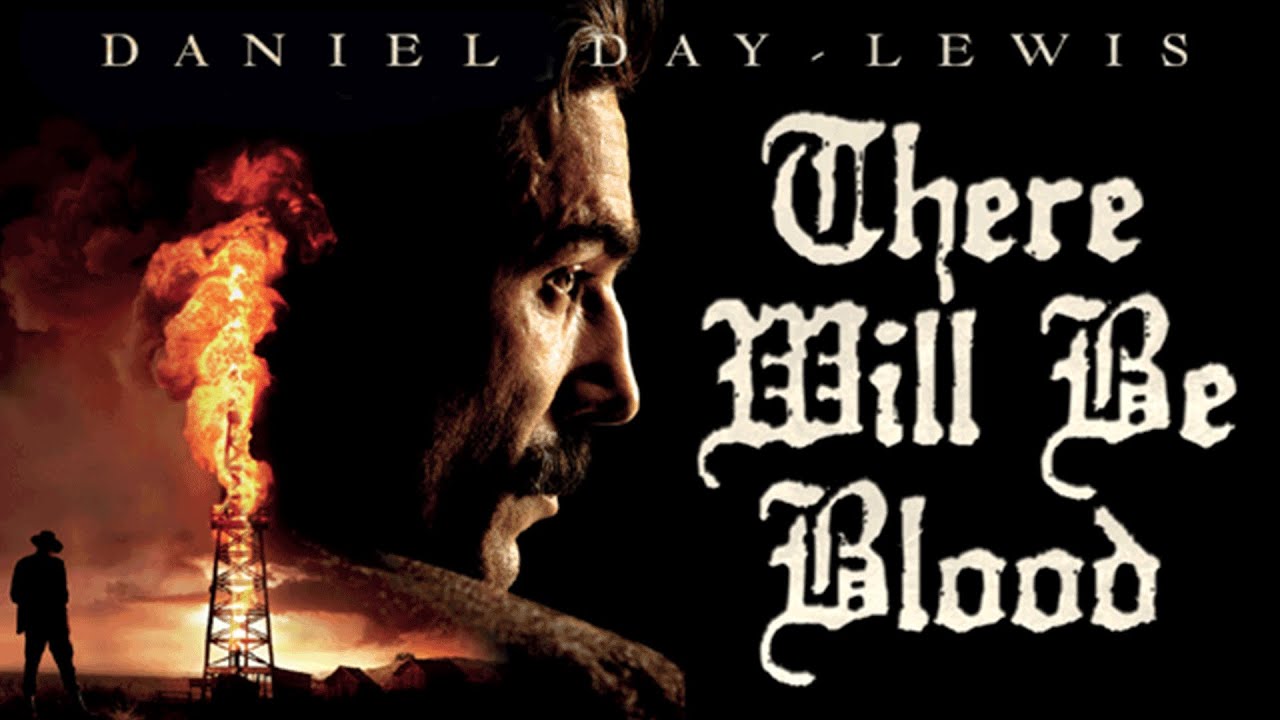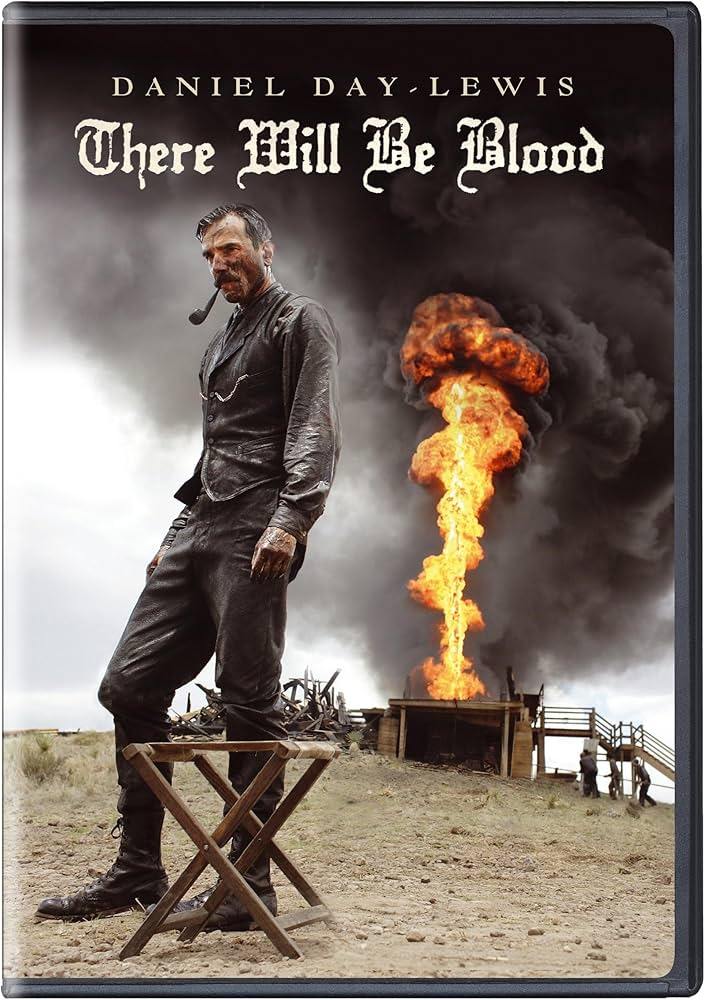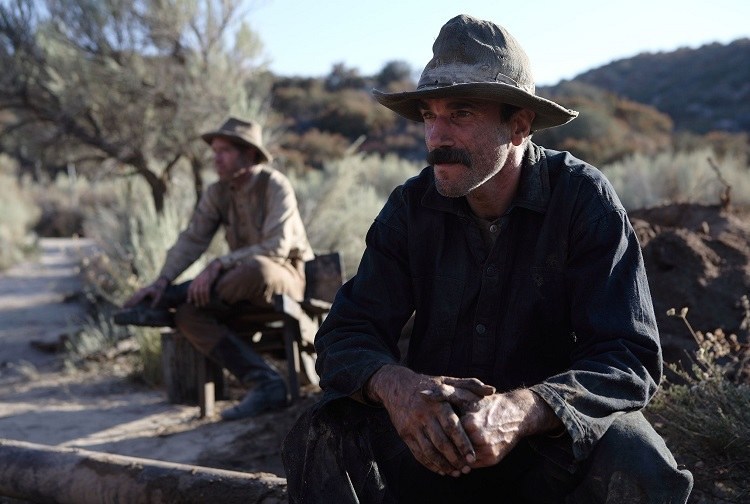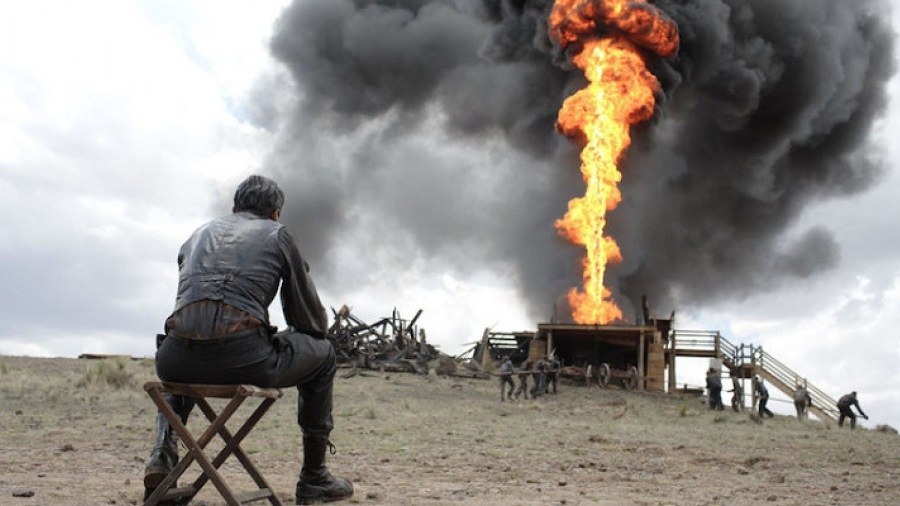
“There Will Be Blood,” directed by Paul Thomas Anderson and released in 2007, is an epic period drama that explores the themes of ambition, power, and the destructive nature of greed. Based on Upton Sinclair’s novel “Oil!”, the film is a gripping portrayal of the early 20th-century oil boom in California, showcasing the relentless pursuit of wealth and the moral dilemmas that accompany it.
The story centers around Daniel Plainview, played masterfully by Daniel Day-Lewis, a silver miner turned oilman who embodies the American spirit of ambition and entrepreneurship. From the film’s opening sequence, which depicts the brutal and solitary nature of his early endeavors, viewers are drawn into Plainview’s world—a harsh landscape where survival requires determination and ruthlessness.
Plainview’s character is complex; he is both a visionary and a deeply flawed man. As he builds his oil empire, he is driven by an insatiable desire for success, willing to manipulate and deceive those around him. His pursuit of wealth leads him to the small town of Little Boston, where he seeks to acquire land for drilling. Here, he encounters Eli Sunday, portrayed by Paul Dano, a charismatic yet self-righteous preacher who represents the clash between faith and commerce.
The dynamic between Plainview and Eli is one of the film’s central conflicts. Eli, who seeks to impose his moral authority on the community, often clashes with Plainview’s cutthroat business practices. Their relationship serves as a microcosm of the larger themes at play in the film: the intersection of religion and capitalism, the nature of ambition, and the moral compromises that individuals make in the name of success. This rivalry culminates in intense confrontations that highlight the stark contrast between their worldviews, ultimately leading to a devastating showdown.
Anderson’s direction is marked by its meticulous attention to detail and the film’s striking visual composition. The cinematography, handled by Robert Elswit, captures the vastness of the California landscape, creating a stark backdrop that emphasizes the isolation and ambition of its characters. The sweeping shots of oil fields and desolate plains evoke a sense of grandeur, while also underscoring the environmental degradation caused by the oil industry. The film’s score, composed by Jonny Greenwood, adds another layer of intensity, with haunting melodies that enhance the emotional weight of the narrative.

One of the film’s most powerful elements is its exploration of the corrosive effects of greed and ambition on the human spirit. As Plainview’s wealth grows, so does his paranoia and alienation. He becomes increasingly isolated, losing touch with his adopted son, H.W., who represents the innocence Plainview sacrifices in his quest for power. This relationship underscores the film’s critique of the American Dream—while success may come at a great cost, it can also lead to profound loneliness and despair.

The pacing of “There Will Be Blood” is deliberate, allowing viewers to immerse themselves in the characters’ internal struggles. The film unfolds almost like a tragedy, with Plainview’s ambition ultimately leading to his moral decay. His transformation from a determined entrepreneur to a tyrannical figure serves as a cautionary tale about the dangers of unchecked ambition.
The film’s climax is both shocking and thought-provoking. The final confrontation between Plainview and Eli culminates in a powerful scene that encapsulates the film’s themes of dominance and the human condition. In this moment, Plainview reveals the depths of his depravity, exposing the moral void that has consumed him. The ending leaves viewers questioning the true cost of success and the legacy of those who pursue power at any expense.

In conclusion, “There Will Be Blood” is a masterful exploration of ambition, power, and the darker aspects of the American Dream. Paul Thomas Anderson’s direction, combined with Daniel Day-Lewis’s unforgettable performance, creates a film that is both visually stunning and thematically rich. By examining the complexities of human desire and the consequences of greed, the film remains a poignant commentary on the nature of success and the moral compromises that individuals face in their pursuit of greatness. Ultimately, “There Will Be Blood” stands as a landmark achievement in American cinema, inviting viewers to reflect on the costs of ambition and the nature of humanity itself.

